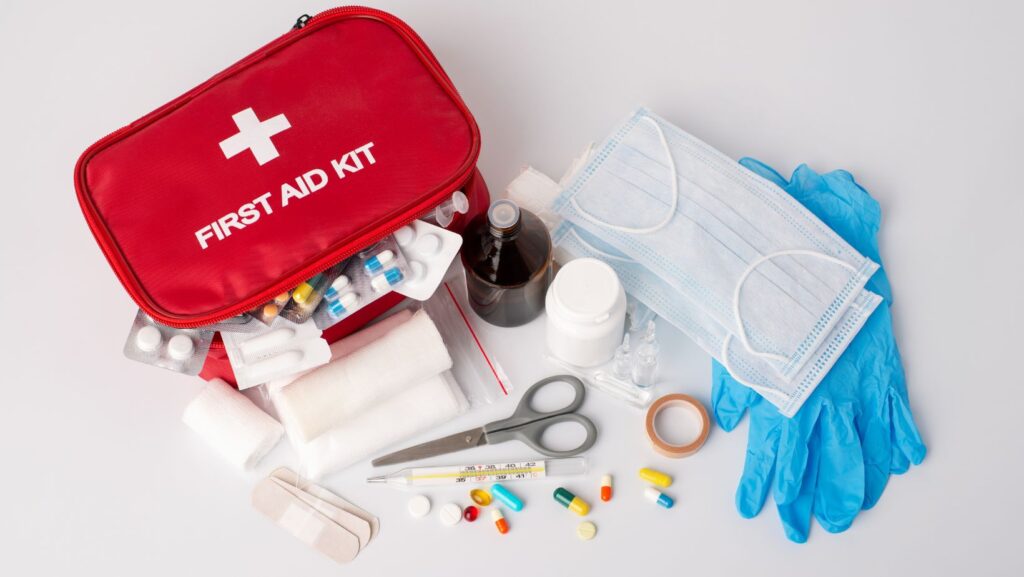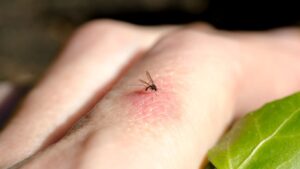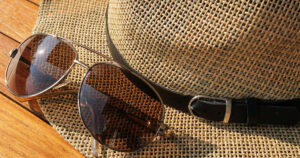Essential Supplies For A Travel First Aid Kit
When embarking on a travel adventure, whether it is a short weekend getaway or an extended road trip across multiple countries, being prepared for medical emergencies is crucial. A well-stocked travel first aid kit can make all the difference in managing minor injuries and ailments effectively. Here’s our guide to packing a comprehensive first aid kit for your travels, ensuring you are equipped to handle minor emergencies. If you are planning longer trips or trips to remote areas we would suggest completing a course in First Aid and Resuscitation.
Basic Medical Supplies:
-
- Adhesive Bandages: Various sizes for small cuts and blisters.
-
- Sterile Gauze Pads and Adhesive Tape: For dressing larger wounds.
-
- Antiseptic Wipes: To clean wounds and prevent infection.
-
- Tweezers: For removing splinters or ticks.
-
- Scissors: For cutting tape, gauze, or clothing in emergencies.
-
- Safety Pins: Useful for securing bandages or splints.
-
- Disposable Gloves: To maintain hygiene while treating injuries.
Medications:
-
- Pain Relievers: Such as paracetamol or ibuprofen.
-
- Antihistamines: For allergic reactions and insect bites.
-
- Antacids: To manage indigestion and heartburn.
-
- Anti-diarrheal Medication: Essential for managing stomach upsets.
-
- Motion Sickness Tablets: For those prone to travel sickness.
-
- Rehydration Sachets: To prevent dehydration in case of diarrhoea or heat exposure.
Treatment for Minor Ailments:
-
- Hydrocortisone Cream: For insect bites, rashes, and allergic reactions.
-
- Antibiotic Ointment: To prevent infection in minor cuts and abrasions.
-
- Aloe Vera Gel: For soothing sunburns.
-
- Lip Balm: To prevent dry, cracked lips.
-
- Eye Drops: For dry or irritated eyes.
Miscellaneous Items:
-
- Thermometer: To monitor fevers.
-
- Burn Cream: For minor burns.
-
- Cold Pack: Instant cold packs for sprains or bruises.
-
- Medical Adhesive: Such as super glue for minor skin lacerations.
-
- Emergency Blanket: To retain body heat in case of an emergency.
-
- First Aid Manual: A compact guide to managing common injuries and illnesses.
Personal Health Items
In addition to the above essentials, remember to include any personal medications you might need. Ensure they are clearly labelled, and carry a copy of your prescription in case you need a refill while travelling. If you wear glasses or contact lenses, pack an extra pair and necessary cleaning solutions.
Tips for Maintaining Your First Aid Kit
-
- Regularly Check Expiry Dates: Ensure medications and supplies are within their use-by dates.
-
- Replenish After Use: Replace items as soon as they are used to keep the kit fully stocked.
-
- Store Properly: Keep the kit in a cool, dry place, easily accessible in your vehicle or luggage.
-
- Tailor to Your Needs: Consider the specific needs of your travel companions and the nature of your trip when packing your kit.
Conclusion
A well-prepared first aid kit is an indispensable part of your travel gear, providing peace of mind and the ability to handle minor health issues on the go. By taking the time to pack and maintain a comprehensive kit, you ensure that you’re ready for any eventuality, allowing you to focus on enjoying your journey.
Disclaimer
The information provided in this blog post is for general informational purposes only and is not intended as a substitute for professional medical advice, diagnosis, or treatment. Always seek the advice of your physician or another qualified health provider with any questions you may have regarding a medical condition. Never disregard professional medical advice or delay in seeking it because of something you have read on this blog.




